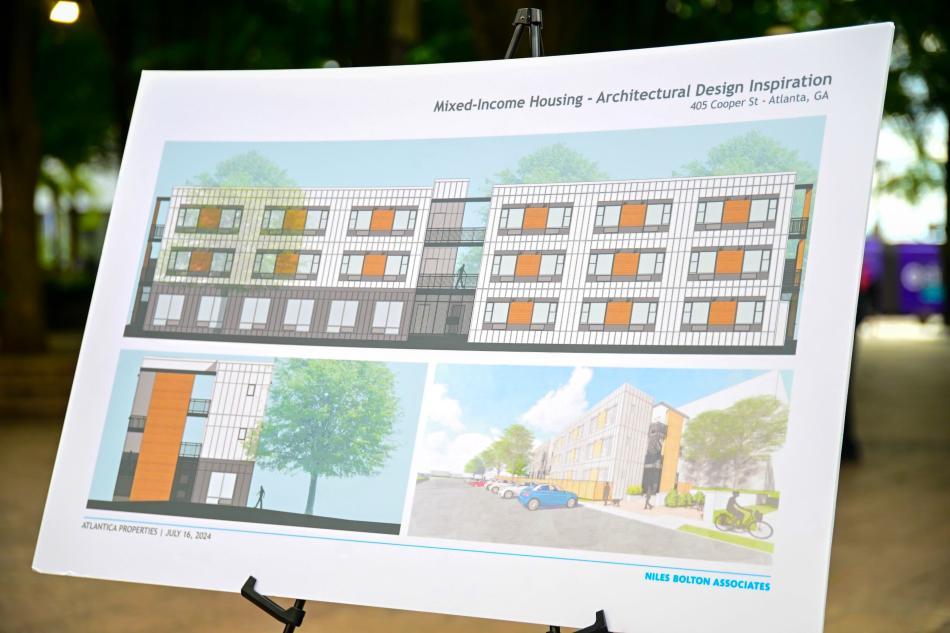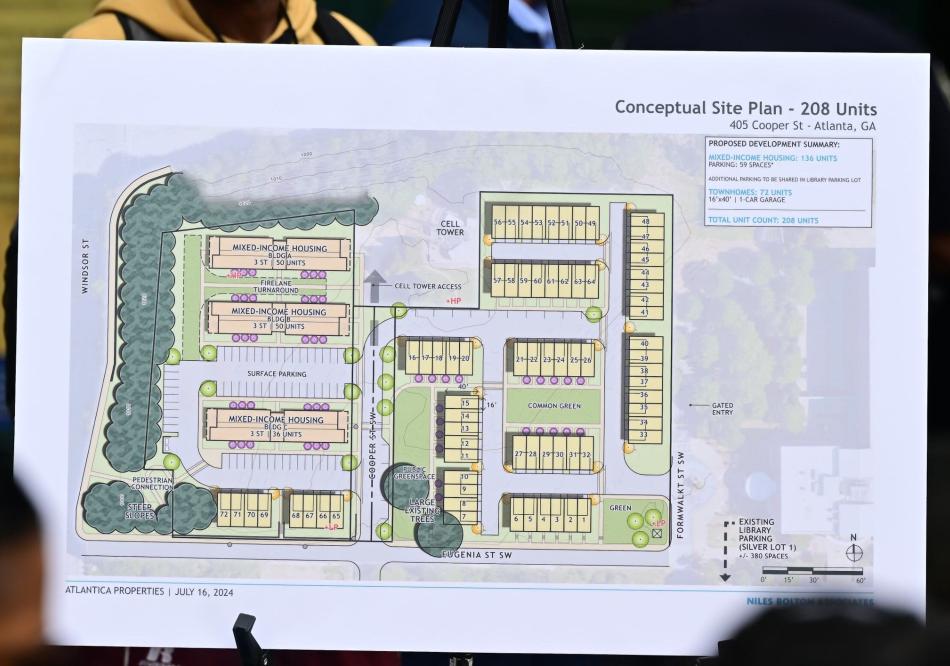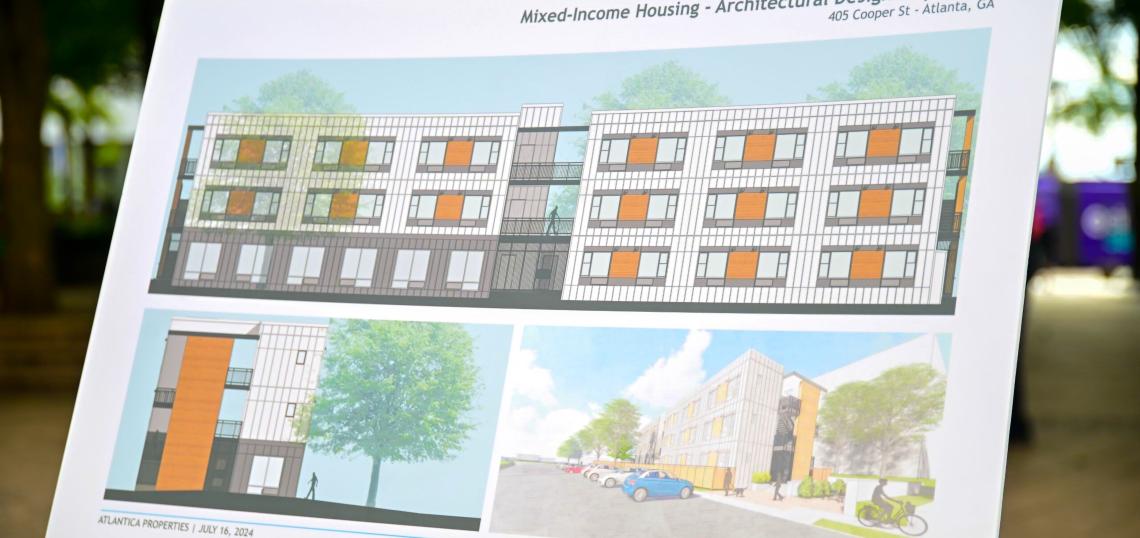The largest single investment aimed at combating homelessness in Atlanta history is being put together at the city level, with a goal of creating what project leaders call hundreds of units of quality and thoroughly affordable housing, with a special focus on revitalizing downtown.
Faced with dwindling federal pandemic relief funds, Atlanta Mayor Andre Dickens and the Atlanta City Council on Tuesday detailed plans to authorize $60 million in new public funding to address homelessness. The scale is being described as a “record” and “historic."
Dickens revealed plans Tuesday for a Homeless Opportunity Bond expected to generate $50 million, while city councilmembers introduced an ordinance to authorize that funding mechanism. Other legislation that would devote $10 million from the city’s Affordable Housing Trust Fund over the next six years was also introduced by city councilmembers.
According to Dickens’ office, the funding from bond proceeds and trust fund coffers would be combined with new private and public investments totaling more than $120 million for supporting unhoused residents with services and dignified housing arrangements.
“This is not just about offering someone a roof over their heads for a night or two,” Dickens said in a prepared statement. “It is about creating a pathway and building a foundation for a better life.”
All told, city officials estimate the investment will create up to 700 new housing units described as “high-quality” and “deeply affordable.”
Among those would be 500 quick-delivery housing options that could be open alongside wraparound services by the end of 2025, via the mayor’s Rapid Housing Initiative. That program uses modular buildings on city-owned land to fast-track production of supportive housing.
Another project outlined during a Tuesday news conference would replace a large encampment south of downtown in Mechanicsville—which city officials want shut down by the end of September—with a range of 208 housing options. Those would include modular-style units geared toward treatment and support services, plus a mix of affordable and market-rate apartments and townhomes, alongside a variety of greenspaces.
 An example of housing solutions presented Tuesday for Cooper Street in Mechanicsville, where city leaders want a large encampment shut down this month. Photo courtesy of City of Atlanta
An example of housing solutions presented Tuesday for Cooper Street in Mechanicsville, where city leaders want a large encampment shut down this month. Photo courtesy of City of Atlanta
According to a Niles Bolton Associates-designed site plan presented Tuesday, current plans call for 72 townhomes with one-car garages arranged mostly toward the eastern side of the Mechanicsville site; the 136 mixed-income apartments would rise in three separate buildings. (Last year, city officials proposed a Rapid Housing Initiative for the area, similar to The Melody that opened in January downtown, but those plans were later nixed.)
As the AJC relayed in a thorough report last week, a rash of violence at encampments around the city including on Cooper Street has lit a fire under city officials to find housing solutions. The newspaper found that more than a dozen people experiencing homelessness have been killed across the metro this year alone (sometimes in brutal ways), while numerous shootings, assaults, and other serious crimes have also been reported.
 Site plan in the works for the Cooper Street initiative, where a mix of affordable and market-rate housing could rise. Photo courtesy of City of Atlanta
Site plan in the works for the Cooper Street initiative, where a mix of affordable and market-rate housing could rise. Photo courtesy of City of Atlanta
According to the city, the funding plan outlined this week would also beef up Atlanta’s current permanent supportive housing pipeline, helping to fund up to 200 units in renovated or newly built apartment buildings.
Dickens’ office says the funding will support the mayor’s goal to revitalize downtown as one of the “priority geographies” where a “whole-of-government approach” is being applied to help reverse decades of disinvestment.
The city’s last Homeless Opportunity Bond was issued seven years ago this month. It raised a combined $50 million in local public financing and matching philanthropic dollars, per the city.
Still, in terms of Atlanta’s unsheltered population, the numbers appear grim, as with many cities still grappling with fallout from the COVID-19 pandemic.
According to a 2024 tally compiled by Atlanta housing advocates Partners for HOME, the city’s unsheltered population on the streets has swollen by 63 percent since the pandemic ebbed, from 640 in 2022 to 1,040 this year.
On the bright side, the total number of Atlantans experiencing homelessness remains 30 percent below 2016 levels, according to Partners for HOME’s tally.
...
Follow us on social media:
Twitter / Facebook/and now: Instagram
• Forbes declares Atlanta the 'most educated city in America' (Urbanize Atlanta)






